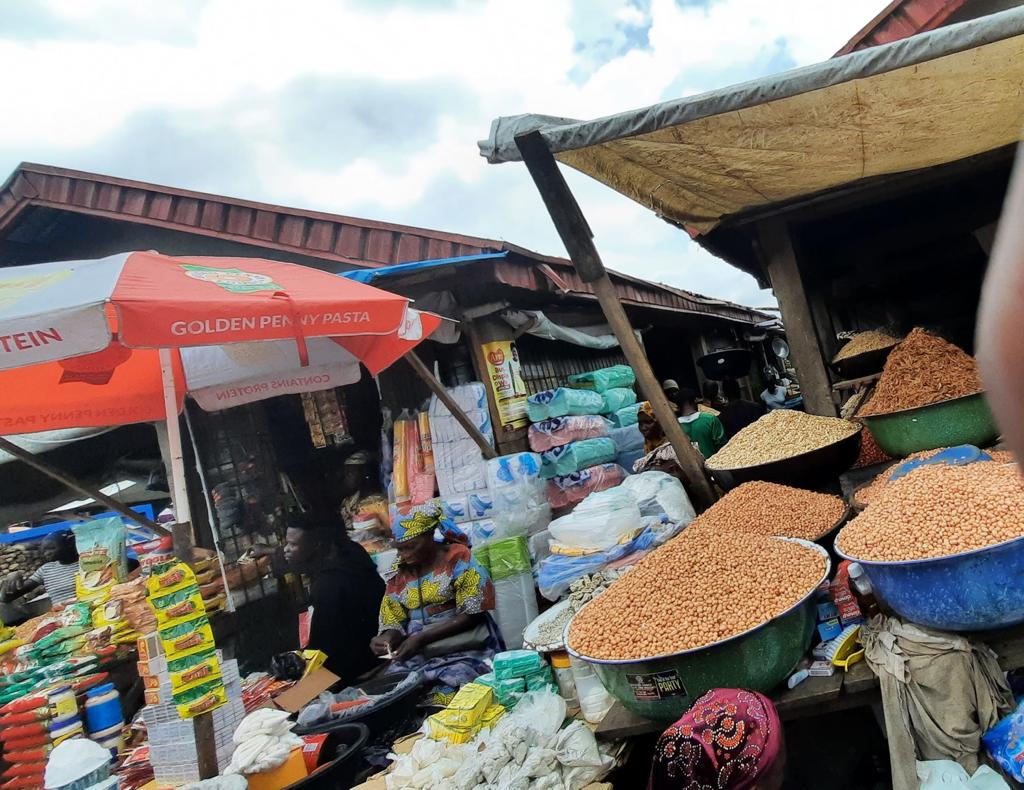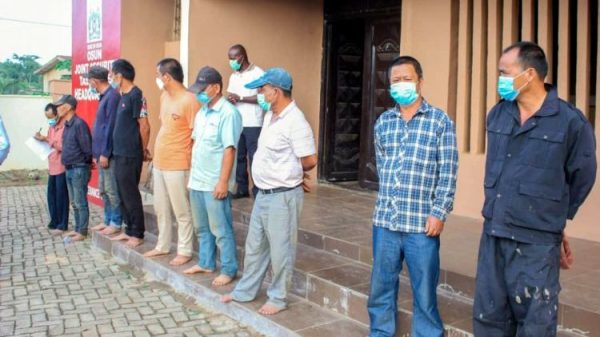The consumer price index (CPI), which measures the rate of change in prices of goods and services, rose to 22.04 percent in March 2023, up from 21.91 percent in the previous month.
The inflation rate data is contained in the latest CPI report released on Saturday by the National Bureau of Statistics (NBS).
The March increase comes across as the third consecutive surge in the country’s inflation figure since the year began.
According to the NBS report, “the March 2023 inflation rate showed an increase of 0.13 percent points when compared to February 2023 headline inflation rate”.
Advertisement
“On a year-on-year basis, the headline inflation rate was 6.13 percent points higher compared to the rate recorded in March 2022 which was 15.92 percent,” the data bureau said.
This shows that the headline inflation rate (year-on-year basis) increased in March 2023 when compared to the same month in the preceding year (March 2022).
“However, on a month-on-month basis, the all-items index in March 2023 was 1.86 percent, which was 0.15 percent points higher than the rate recorded in February 2023 (1.71 percent),” NBS said.
Advertisement
According to the report, this means that in March 2023, on average, the general price level was 0.15 percent higher relative to February 2023.
NBS also said items like food and non-alcoholic beverages contributed largely on the divisional level to the increase in the headline.
“The contributions of items on the divisional level to the increase in the headline index are food and non-alcoholic beverages (11.42 percent); housing, water, electricity, gas, and other fuel (3.69 percent),” the agency said.
“Clothing and footwear (1.69 percent); transport (1.43 percent); furnishings, household equipment and maintenance (1.11 percent); education (0.87 percent); health (0.66 percent); miscellaneous goods and services (0.37 percent); restaurant and hotels (0.27 percent); alcoholic beverage, tobacco and kola (0.24 percent); recreation and culture (0.15 percent) and communication (0.15 percent).”
Advertisement
FOOD INFLATION SURGES TO 24.45 PERCENT
Meanwhile, the NBS said food inflation in March 2023 to rose to 24.45 percent on a year-on-year basis — representing a 7.25 percent points higher compared to the rate recorded in March 2022.
The statistics body explained that the rise was caused by increases in prices of oil and fat, bread and cereals, potatoes, yam and other tubers, fish, fruits, meat, vegetables, and spirits.
SOKOTO, ZAMFARA, PLATEAU RESIDENTS PAID LESS FOR FOOD IN MARCH
Advertisement
On the a state profile, Sokoto, Zamfara, and Plateau residents paid less for food in the period under review, the agency noted.
“In March 2023, food inflation on a year-on-year basis was highest in Kwara (28.84 percent), Ondo (28.22 percent), and Lagos (27.92 percent),”the report further reads.
Advertisement
“Sokoto (18.99 percent), Zamfara (20.57 percent) and Plateau (21.38 percent) recorded the slowest rise in food inflation on a year-on-year basis.
“On a month-on-month basis, March 2023 food inflation was highest in Bayelsa (3.11 percent), Rivers (3.00 percent), and Ondo (2.98 percent), while Bauchi (1.03 percent), Zamfara (1.08 percent), and Ogun (1.13 percent) recorded the slowest rise in food inflation.”
Advertisement
‘CONTROLLING SPENDING NOT BEST STRATEGY FOR MODERATING INFLATION’
Last month, Oyeyemi Kale, KPMG Nigeria’s chief economist and former statistician-general of the federation, warned that policy measures aimed at controlling spending may not be the best strategy for moderating inflation.
Advertisement
The economist was reacting to recent policies (interest rate hike, and the naira redesign policy) by the country’s central bank aimed at curbing the current inflationary trend in Nigeria.
According to Kale, following the CBN’s naira redesign policy, currency in circulation has dropped from N3.28 trillion in December 2022 to N1.38 trillion in January and to an estimated N982.09 billion in February 2023, representing a 235 percent decline.
“It was expected that the scarcity of redesigned notes, which caused a cash crunch in the economy since January 2023, would stimulate a slowdown in demand-pull inflation, especially given the series of interest rate hikes from the central bank (500 basis points since May 2022). This has, however, not happened yet,” he said.
“This might indicate a drop in output below effective demand, despite the cash crunch, with some producers of goods and services whose activities are cash-based facing challenges purchasing inputs for production or replacing their stock and distributing them across the country.”







